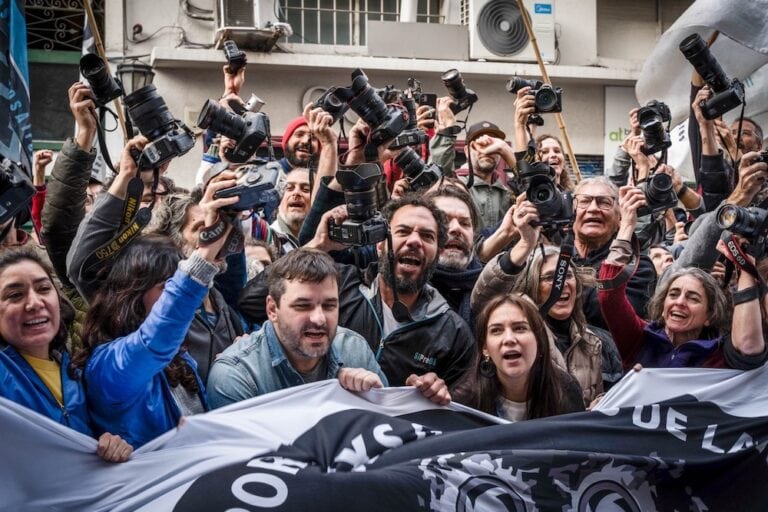(Periodistas/IFEX) – Between 24 June and 1 July 2000, journalist Carlos Monsálvez and newspaper distributor Eduardo Gomez were threatened at gunpoint by individuals who stated that they were acting on behalf of the Neuquén and Santiago del Estero governments. On 24 June, after having been subjected to threats and attacks for the past two months, […]
(Periodistas/IFEX) – Between 24 June and 1 July 2000, journalist Carlos Monsálvez and newspaper
distributor Eduardo Gomez were threatened at gunpoint by individuals who stated that they were acting on behalf of the Neuquén and Santiago del Estero governments.
On 24 June, after having been subjected to threats and attacks for the past two months, Monsálvez, correspondent for the Neuquén television channel Todo Noticias (TN), received another threatening message. As it began to get dark, an unknown assailant mugged him in the street and snatched the video camera Monsálvez uses in his work. The assailant did not take his wallet or cell-phone. Hours later, unknown attackers vandalised his car, which was parked in the street, filling it with garbage and leaving the TN sign (which is normally stuck onto the rear window to identify the vehicle) on the steering wheel.
Monsálvez had previously been beaten up in front of the provincial legislature on 1 May. But the attacks became more violent after he sent the TN headquarters pictures of the violent disturbances which occurred during the 9 June national general strike. On the morning of 11 June, a worried Monsálvez met with Director of Public Information Pedro Alejandro Salvatori. According to Monsálvez, the official reproached him, stating that TN had “an angry dispute with the provincial government” controlled by the Neuquén Popular Movement (Movimiento Popular Neuquino, MPN). The official further recognised that “there are uncontrollable sectors within the party.”
A few hours later, a pick-up truck approached the journalist’s car and the occupants warned him: “Stop sending these things to Buenos Aires or else you will be found floating; you all live near the water,” making reference to Monsálvez’s home which is located along the river Neuquén, in Balsa Las Perlas. Since then, the journalist has noticed vehicles patrolling his home.
On 1 July, Gomez – who distributes the Cordoba daily “La Voz del Interior” in the province of Santiago del Estero – was cut-off by a car minutes after delivering the daily edition of the paper. A man stepped out of the car and warned him: “You are getting involved in something you should avoid. Tata doesn’t like that,” making reference to Governor Carlos Juárez. As the man showed the firearm that he carried in his belt, he told Gomez: “If you continue this pestering, the newspaper will disappear. Or it will burn down.” In the previous two editions, Cordoba’s morning paper had reported on the “favoritism” and “authoritarianism” with which Juárez and his wife govern the province. The articles were part of the debate unleashed after 18 June, when the governor prohibited the performance of the play “The Postman” (“El Cartero”), by Pablo Neruda, at the 25 May Theatre (Teatro 25 de Mayo) in the capital of Santiago del Estero, because of a scene containing nudity. After denouncing this act of censorship, leading actor Darío Grandinetti received a death threat by telephone. A Santiago del Estero radio station that reported on the issue received a bomb threat.
PERIODISTAS strongly condemned this intimidation, rejected all forms of restrictions on press freedom, and demanded “that the Neuquén and Santiago del Estero authorities explain these acts as soon as possible, as such events create a general feeling of defencelessness and leave one with the impression that thugs who say they act in the name of the government can act with impunity.”


